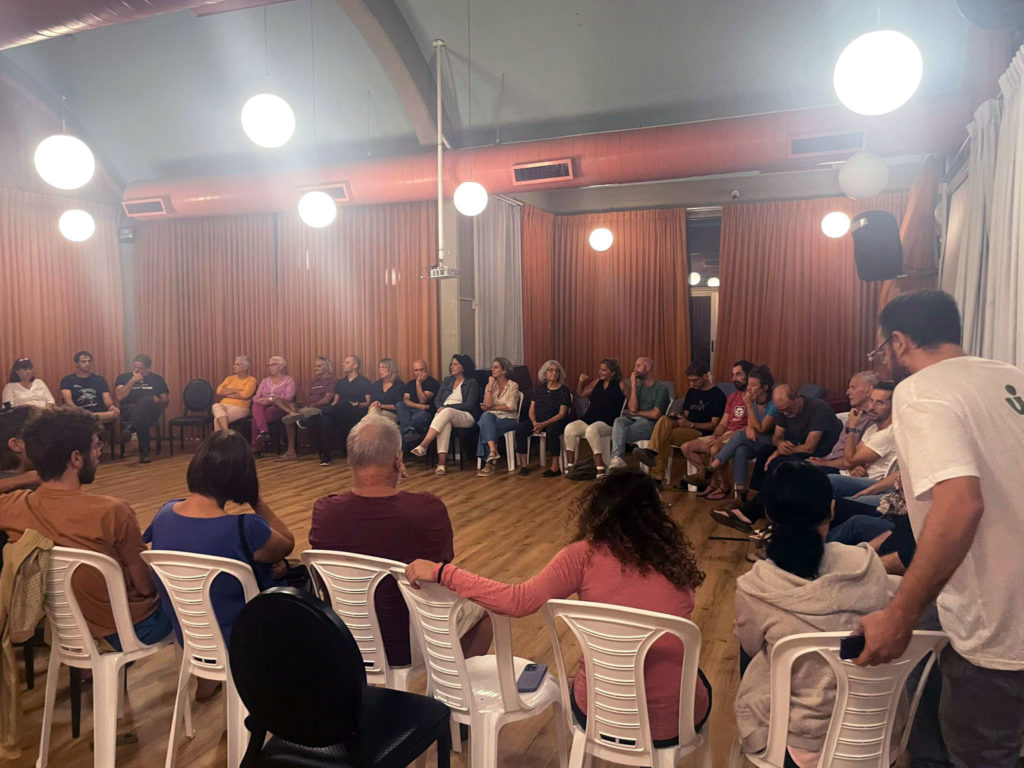Dialogue for the SFP home communities
Dialogue for the SFP home communities: the bi-lingual elementary school and the WSNAS village residents
As soon as the first days of the war, we received requests by both the residents of our home village of Wahat al-Salam-Neve Shalom and the staff of the local bi-lingual elementary school to conduct dialogue sessions due to the war and the complexities it brings to daily life in the nationally-mixed spaces. So far we held 3 dialogue sessions for the residents of the village and 2 dialogue sessions for the school: 1 for the staff and 1 for the parents, all held by SFP facilitators. All of the expressed will to continue with the meetings. We are especially happy and honored to give back to the community of the village where the SFP was established.
Dialogue in the bi-lingual elementary school
We conducted one bi-national session to the school staff and one uni-national session to the parents community, both online.
For the staff, the topic of the session was framed as how to deal with the situation from the professional position as teachers in the school. The professional framing was very important and helpful since it created a feeling of clear boundaries for the talk. As the current situation of the war is chaotic and may leave a sense of helplessness, the clear framing provided a sense of control and safety. It enabled the teachers not only to open up but also to support one another and share advice and tools from their shared experience.
The facilitator mentioned that in the beginning of the meeting she said to the group that since the reality is so shaken and so extreme, the tools we developed so far might not fit the situation, and so we might need to develop new tools to handle things. But by the end of the meeting she realized she was wrong, watching the teachers using their years-long experience as teachers in a bi-lingual school with all the complexities it brings, supporting one another and figuring out together how to respond to everyone’s needs. For example, one teacher expressed fear of coming back to class (as schools were shut down for a few days due to the rockets) because as she experiences anxiety these days, she’s afraid she might have an anxiety attack in front of the children. So the teachers decided they should go to classes in couples at least in the first days to support one another.
Dialogue between the residents of the village of Wahat al-Salam-Neve Shalom
The residents of Wahat al-Salam-Neve Shalom turned to the School for Peace in order to have a facilitated dialogue for them, as tensions already rose up to the surface. As the war brought up high emotions, things started to boil in the WhatsApp groups and the village representatives wanted to attend to that and allow space to share emotions and needs in a healthy and productive manner even in this traumatic moment.
We conducted a series of 3 face-to-face sessions: two uni-national meetings and one bi-national meeting, and we already set another series of three more sessions, as the dialogue was very much needed and helpful.
The different voices in the sessions expressed high levels of mixed, and sometimes opposing, emotions and experiences: fear, pain, suspiciousness, helplessness, surprise, grief, silencing, persecution, disappointment, frustration and more. The sessions were very emotional and complexed, but also full of respect to one another’s pain and point of view, and step by step the group got to a place where they can not only share different experiences, but also to inquire together in depth, bravely and respectfully, the source of the conflicts between them at this moment and how to heal it.
The participants even expressed a will to establish those meetings on a regular basis, not only as a response to an acute crisis but also as a way to maintain the relationship and build trust and resilience, so the partnership is more sustainable.

